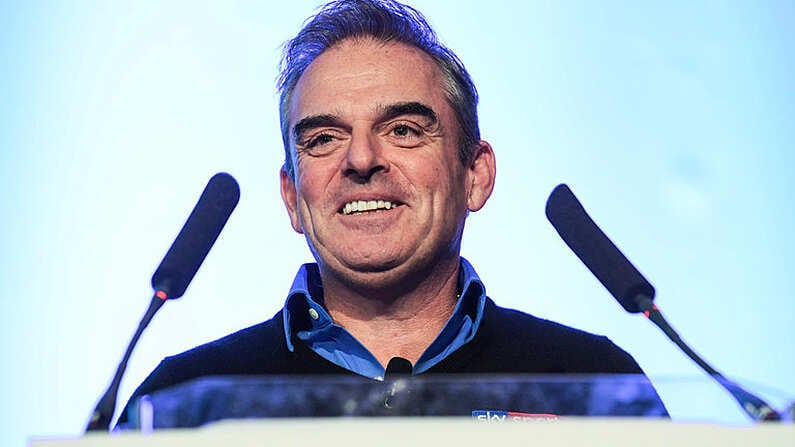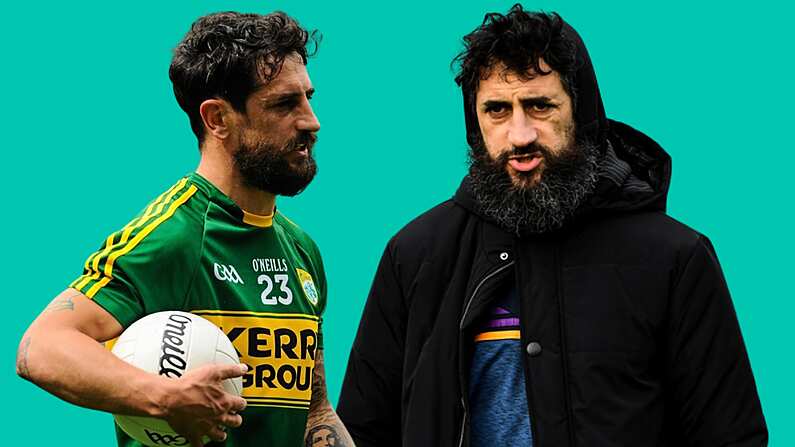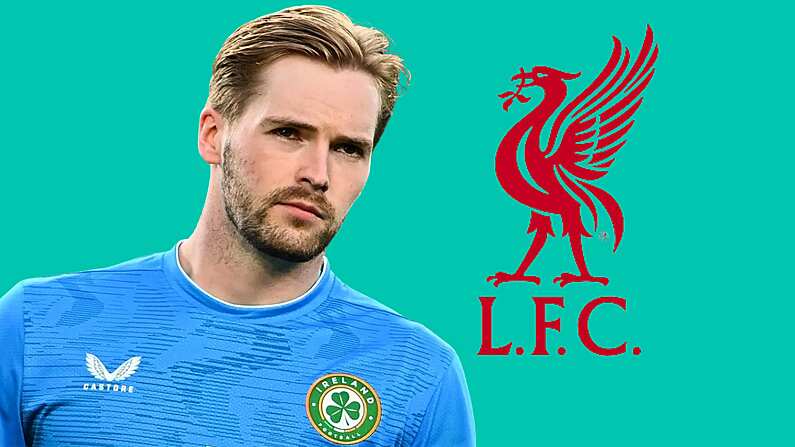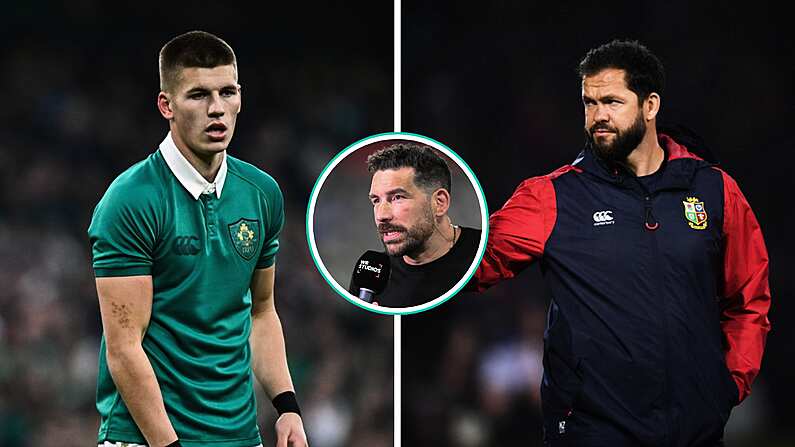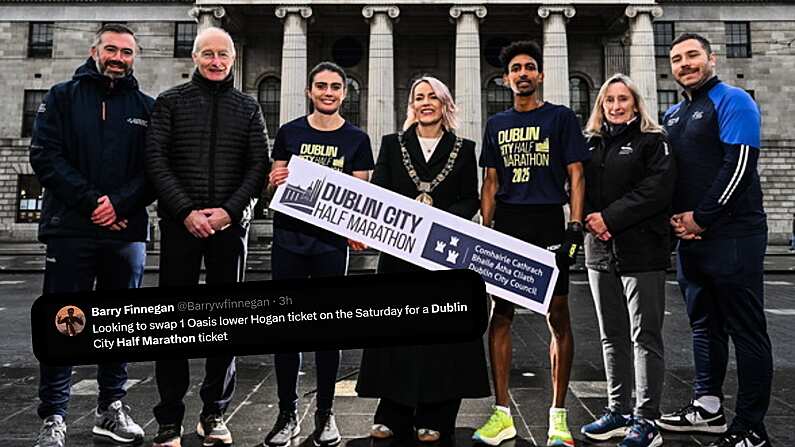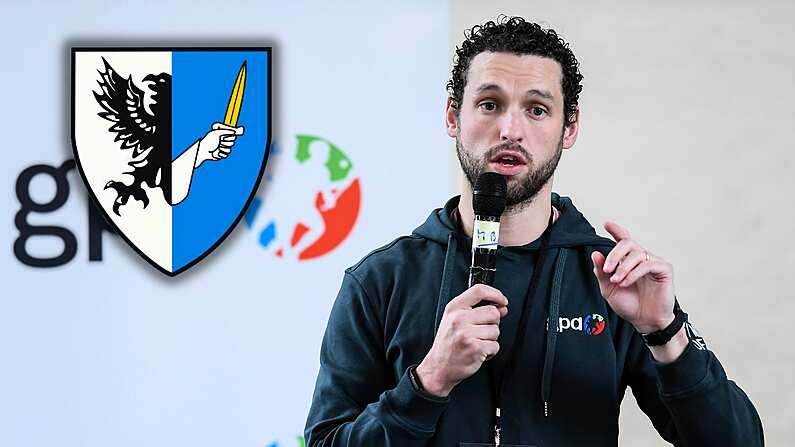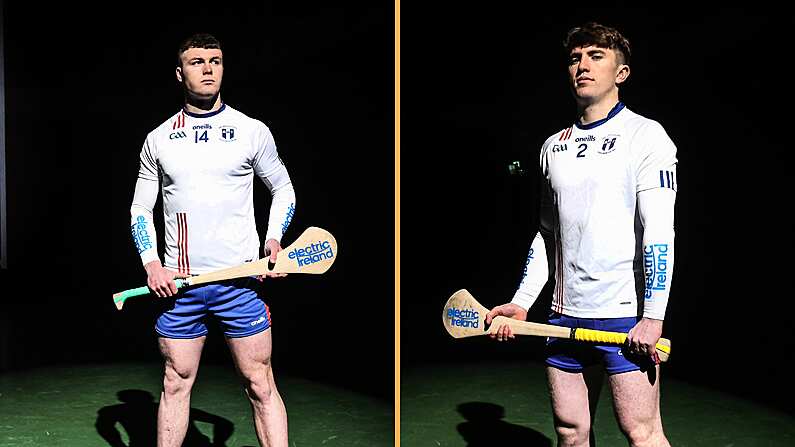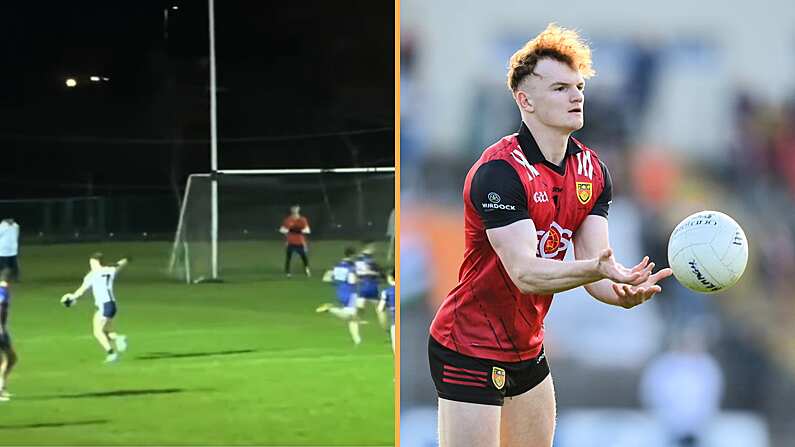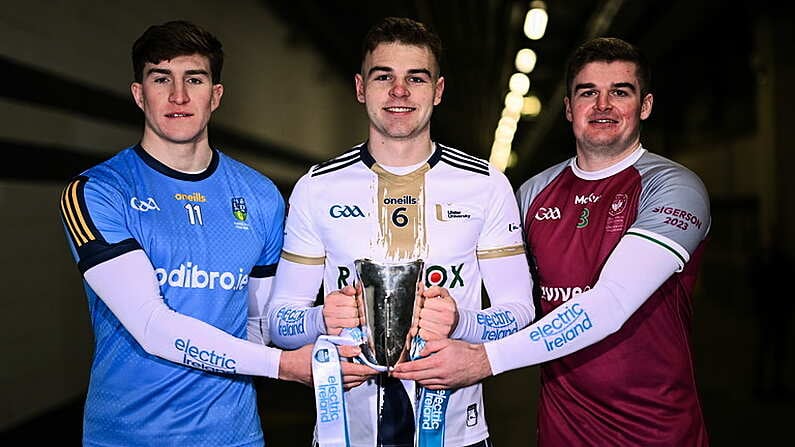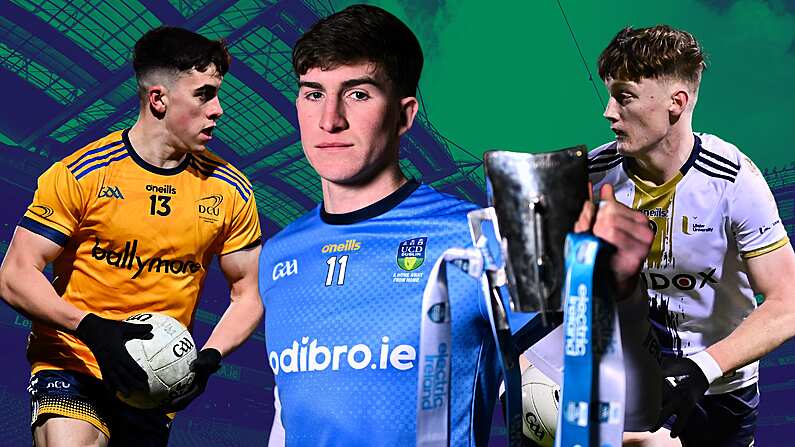"Coming home to Croker, eh?"
For Paul McGinley, Croke Park was initially conceived as a stage for the burgeoning of very different dreams. Playing in a minor final with Coláiste Éanna against a Drimnagh Castle team featuring Niall Quinn, McGinley rifled home a winning goal into the top corner of the goal in front of the Canal End.
I can still see it. I just wish, in those days,there was video to record it! It really was a cracker. You talk about the mental mindset in golf, all I could see was the net. I didn’t see the goalkeeper.
The hurtling, upward and straight-as-a-die trajectory of the shot chimed nicely with the prospects of his own football career, which would eventually crumple with his knee in a training session with Ballyboden a year later.
As McGinley hobbled off, he was taking the first steps on the road less travelled: within six years, he was on the European Tour.
McGinley was back in Croke Park this weekend, giving the final keynote address at the GAA's Games Development Conference. The aim of his talk was two-fold and satisfyingly circular. First, he accentuated how his GAA grounding informed his Ryder Cup-winning captaincy and then offered a few morsels of coaching and organisational wisdom from his career's apogee.
"The principle of the GAA is you’re from a county, and you represent that county". McGinley tells Balls. "But you’re also representing your town, your village, and the people you’re from. [I moved] that basic principle on to the Ryder Cup, where it happened to be countries instead of counties. It was all about talking to the players in that manner, and getting engaged with the heart as we are all proud of where we come from, and making the players realise it's not just a faceless blue flag you’re representing".
His method of doing so was a triumph of detailing and distillation, at which Alex Ferguson marvelled. McGinley's eye for small detail is relentless: the group interview preceding his interview with Balls was twice paused as McGinley scribbled down notes to raise in his address that occurred to him during the interview.
Muriel Spark wrote of piling up details to create an atmosphere; McGinley's doing so incubated a victory. Journalists writing pieces after the win found their colour in, well, colour.
McGinley had the carpets and curtains at the Gleneagles Hotel were replaced with blue and gold equivalents; bestriding the middle of the team meeting room was a large fish tank replete with blue and goldfish. Further to that, players were surprised to find pictures of their hometowns waiting in their bedrooms. Corridor walls were beguiled with bespoke images commissioned by McGinley, one of which worked as a "reframing" device. How to guard the European team against complacency, having won five of the previous six Ryder Cups?
McGinley's painting featured the Roll of Honour with attention paid to the States' overall advantage in order to flip the Europeans' mission: this wasn't about staying at the top as they weren't even there yet. This, McGinley says, was inspired by Alex Ferguson's chase of Liverpool's eighteen league titles.
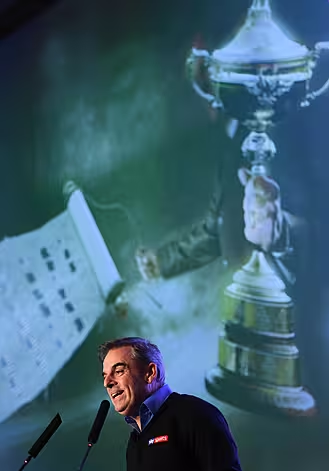
Nonetheless, had things worked out differently, McGinley may be more familiar with the harsh Sunday sunlight above the Croke Park grass than he is with the soft spotlights of the Hogan Suite. But McGinley is very comfortable here, he is a fantastic communicator and organiser with a very clear passion and deep knowledge of the GAA.
Given that he has a degree in International Business from the University of San Diego, California along with a diploma in Marketing from DIT, we engage in some fantasy. (Granted, the GAA have recently removed the need for a business qualification for the vacant role).
What if Paul McGinley were the next Director-General of the GAA? What would he change? If anything?
But first, his opinion of where the GAA is currently at. Has the GAA become too commercial? Has it strayed too far from its roots?
As much as I understand the point you’re making, and it would be great to hark back to the good old days, you have to move into the modern world. Whether you like it or not, the modern world is one of commerciality and a changing consumer.
There is a changing dynamic for the kids who are going to be playing the GAA in the future, whose influences will be very different than they were for me growing up.
So the GAA needs to interact with these kids, and not just online, but at club level. If you go to a rugby club or a soccer club and they have cutting-edge technology and cutting-edge gear, where everything is great, and shiny, and the coaching is great and really, really on the money, and then they go to the GAA club and everything is second or third-rate, then that doesn’t paint the GAA in a good light.
So if you don’t have a commercial side to it, and bringing in money, then it’s very, very hard to go to that level. So there’s got to be a balance there.
Therefore, McGinley the Director-General wouldn't change too much. He gives the question plenty of thought, pausing at length before answering.
I don’t think that the [current] path is way off where it needs to be. I can understand that the commerciality of the GAA has to be part of its future. And if it's not, you’re going to lose players, and kids coming through. So it’s trying to align people who don’t see that and trying to bring them on side.
That’s really important, the last thing you want is a faction within the GAA, where a group of people see it one way and the executive see it another way.
The most important thing: to unify.
Away from the vagaries of the role, he speaks with easy clarity on some of the other issues afflicting Gaelic games today. Engagement with the media, he says, is vitally important and would encourage players to do so. With one caveat.
Yeah, they should, absolutely. The media is a very important forum for anyone, and it’s important to have feedback, especially positive feedback. I guess I’m speaking with my media hat on, because I’m now in the media, but I didn’t restrict any of the players speaking to the media so long as they were on message.
It was very important that there was continuity in their messages, and that there weren’t conflicting ideas coming out.
McGinley spoke about the importance of "empowering the individual" at the Ryder Cup, meaning that he did not force all members of his squad to subscribe to a single coaching dogma. For example, players were allowed to do whatever they wished during the evening time, and weren't forced to sit together at assigned times. (Forcing Tiger Woods to do this, says McGinley, has been a historic mistake by the Americans).
Therefore, it is unsurprising that McGinley is also against blanket drinking bans - the wisdom of which was notably questioned by Joe Canning last year and openly criticised by Tipperary's Kieran Bergin last week.
You look at what happened down in Australia with the English cricket team. They put a blanket ban in, and all hell broke loose. When you dictate to professional sportsmen, or amateur sportsmen, it’s not a good place to be.
Everybody has to be a lot more grown up. I had that issue going int the Ryder Cup: what do I do about social media? Do I let guys tweet and show pictures from inside our room and such?
Rather than putting a blanket ban on it and restrict everyone from using mobile phones, I said that I’m not having any blanket bans but instead that I trust you not to let you or your teammates down or that may benefit the opposing team or paint us in a bad light.
I gave them all responsibility, and when you give people responsibility, in my experience, they generally repay you.
Nonetheless, McGinley is unlikely to be burdened with the ultimate GAA responsibility anytime soon. Anyway, McGinley's taking an office in Croke Park would feel like bringing his work home.
Irish golfer and former Ryder Cup captain, Paul McGinley was at Croke Park at the weekend to discuss the importance of teamwork at the GAA Games Development Conference in partnership with Sky Sports. Paul’s attendance at the event is part of Sky Sports’ commitment in supporting the GAA at grassroots level. Throughout 2017 to 2021, Sky Sports will invest €3million over a five-year period into grassroots which will include leveraging its links to world-class elite sportspeople across three initiatives; the GAA Games Development Conference; the GAA Youth Forum and the GAA Super Games Centres.

